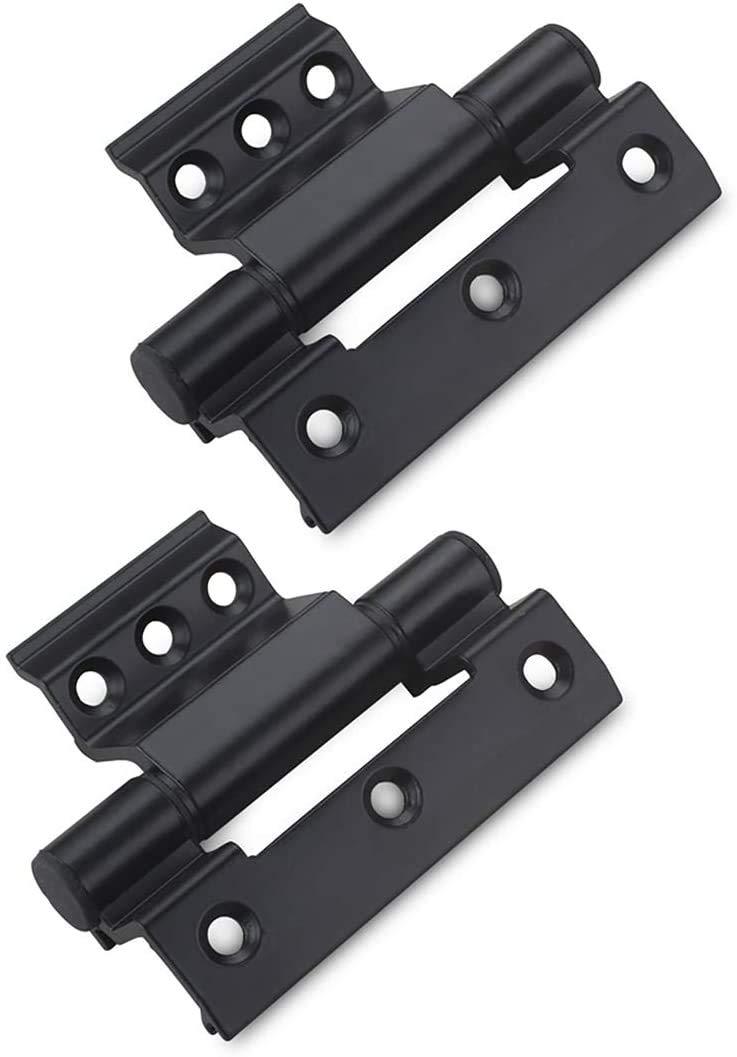Windows are an essential part of any home. They not only provide ventilation and natural light but also enhance the overall aesthetic appeal of your living space. However, the functionality of a window largely depends on the quality and type of window hinges used.
Choosing the wrong hinges can lead to difficulties in opening and closing your windows, reduced security, and even damage to the window frame over time. This guide will help you understand how to choose the right hinges for your home to ensure both durability and style.
Understanding Window Hinges
Windows are hardware components that connect a window sash to its frame, allowing it to open and close smoothly. There are several types of window hinges, including butt hinges, friction hinges, pivot hinges, and concealed hinges. Each type has its specific purpose and suitability depending on the window design, material, and usage.
Butt hinges are commonly used in traditional wooden windows, offering strong support and reliability. Friction hinges, on the other hand, are ideal for casement windows as they allow the window to stay open at a specific angle without additional support. Pivot hinges are suited for windows that rotate on a central axis, while concealed hinges provide a clean and modern look by hiding the hinge mechanism within the frame.
Factors to Consider When Choosing Window Hinges
1. Window Material
The first factor to consider when learning how to choose the right hinges for your home is the material of your windows. Wooden, aluminum, and uPVC windows each require different hinge types for optimal performance.
Wooden windows generally work well with traditional butt hinges or brass hinges. Aluminum windows are better paired with friction or pivot hinges, while uPVC windows often use specialized uPVC hinges designed to handle lighter sash weight and ensure smooth operation.
2. Window Size and Weight
The size and weight of your window play a critical role in determining the right hinge. Heavy or large windows require robust hinges capable of supporting the load without sagging or causing operational issues. For instance, double-glazed windows are significantly heavier than single-pane ones, necessitating heavy-duty hinges. In contrast, lightweight windows may only need standard hinges, which are less expensive and easier to install.
3. Security Requirements
Window hinges also contribute to the security of your home. If you live in an area with higher security concerns, it’s essential to choose hinges with anti-lift features that prevent intruders from forcing the window open. Security hinges are particularly important for ground-floor windows or easily accessible areas. Learning how to choose the right window for your home ensures that your choice balances both functionality and safety.
4. Ventilation and Opening Angle
Consider how you want your windows to open. Do you need them to swing fully open, tilt for ventilation, or both? Friction hinges are ideal for casement windows that open outward and stay at a fixed angle, while pivot hinges allow rotational movement, providing flexibility in ventilation. By understanding your ventilation needs, you can select a hinge type that complements both the window design and the lifestyle of your household.
5. Aesthetics
Window hinges are not only functional but also contribute to the overall aesthetics of your home. Concealed hinges offer a minimalist look, making them popular in modern interior designs. Brass or antique-style hinges can complement traditional or vintage homes. Considering the style and finish of your hinges ensures that they blend seamlessly with your window frames and overall décor.
6. Durability and Maintenance
Durability is a vital factor when considering how to choose the right hinges for your home. Hinges made from stainless steel, brass, or high-quality alloys are resistant to corrosion and wear, ensuring long-lasting performance. Regular maintenance, such as lubricating moving parts and checking for loose screws, can further extend the life of your hinges. Investing in durable hinges reduces the need for frequent replacements and maintenance, saving time and money in the long run.
7. Ease of Installation
Finally, consider the ease of installation. Some hinges require professional fitting, while others are designed for DIY installation. Choosing hinges compatible with your window type and frame can simplify the installation process and prevent potential damage. Reading product specifications and manufacturer guidelines helps ensure proper alignment and smooth operation.
Popular Types of Hinges
Butt Hinges – Traditional and strong, ideal for wooden windows.
Friction Hinges – Provide adjustable opening angles, suitable for casement windows.
Pivot Hinges – Allow rotational movement, perfect for modern designs.
Concealed Hinges – Hidden from view, offering a sleek and contemporary appearance.
Sliding or Lift-Off Hinges – Designed for easy removal and cleaning, often used in modern aluminum or uPVC windows.
Common Mistakes to Avoid
When learning how to choose the right hinges for your home, homeowners often make a few common mistakes:
Ignoring Weight Specifications: Using lightweight hinges on heavy windows can lead to sagging or failure.
Overlooking Security Needs: Not considering anti-lift or reinforced hinges may compromise safety.
Neglecting Material Compatibility: Aluminum hinges on wooden windows or vice versa can cause a poor fit and wear.
Forgetting Maintenance: Hinges require occasional lubrication to prevent squeaking and corrosion.
Avoiding these mistakes ensures that your windows remain functional, secure, and visually appealing.
Conclusion
Choosing the right window hinges is more than a matter of hardware; it’s about ensuring the longevity, security, and functionality of your windows. By understanding the types of hinges, considering the material, size, security needs, and aesthetics, and focusing on durability and ease of installation, you can make an informed choice that benefits your home for years to come.
Learning how to choose the right hinges for your home may seem daunting at first, but by following these guidelines, you can select hinges that perfectly match your windows and lifestyle. Remember, the right hinge not only supports your windows but also enhances the comfort, safety, and beauty of your home.



